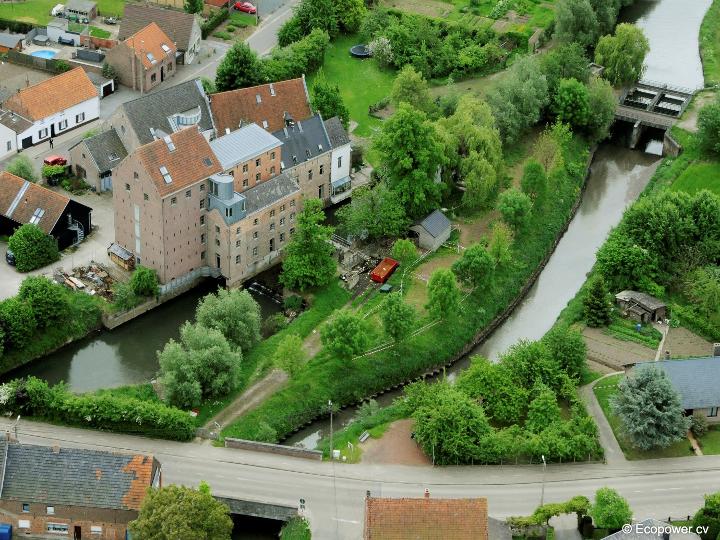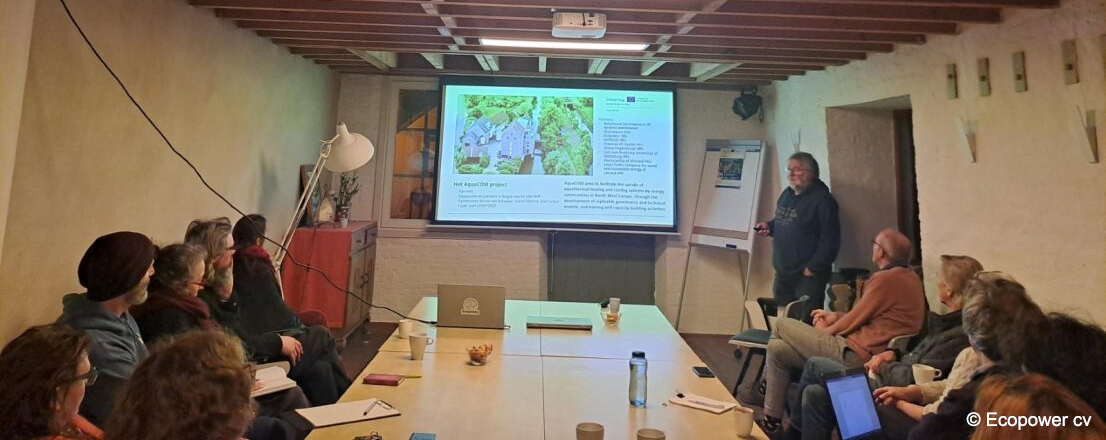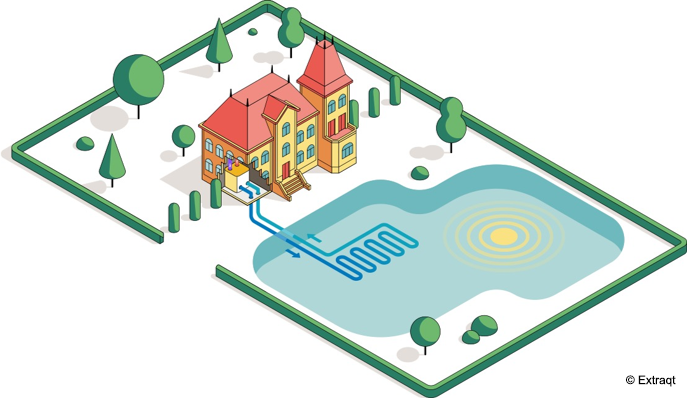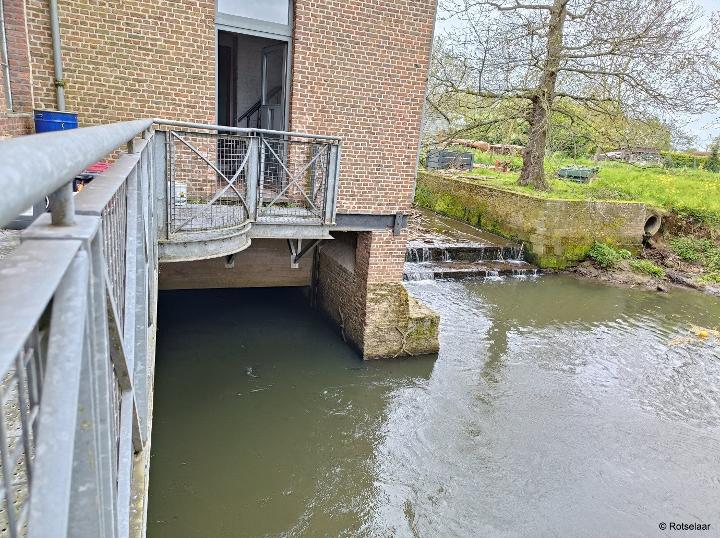The watermill of Rotselaar (Belgium) hosts a cohousing project with 9 dwellings, a micro hydropower installation, a bakery with a wood oven, a small organic farm, an organic vegetable and fruit shop and several meeting rooms. The history of the watermill goes back to the 12th century. The last renovation dates back to the 1990’s. Most of the buildings are heated with fossil gas, some however with wood abundantly supplied by the river Dijle. Ecopower cv, one of the largest renewable energy cooperatives of Europe, was founded here in 1991 and owns the micro-hydropower installation of the watermill. Ecopower produces here up to 500.000 kWh that are fed into the electricity grid of the public distribution system operator Fluvius and supplied (together with production from windturbines and PV installations) to its 70.000 cooperators across the Flemish Region.

The AquaCOM project gives Ecopower the opportunity to build its first district heating project on aquathermal energy. Ecopower will use the green electricity produced at the watermill to extract heat from the river water with one or several heatpumps, and it will supply all buildings of the watermill with green heat. The project started on the 01/07/2023 and will run until 30/06/2027.
To inform all the people living, volunteering or working there about AquaCOM, project partners Ecopower, Extraqt and REScoop.eu organised an information evening on Monday the 22nd of January 2024.
Dirk Vansintjan of REScoop.eu introduced the Interreg NWE project, the 3 pilot projects, and the partners from 5 countries involved. He also informed them that both their not-for-profit association De Molen van Rotselaar vzw as the co-owners association De Molen van Rotselaar VME were on board of the Interreg project as associate partners, giving the opportunity to attend visits and meetings if appropriate.

Stijn De Jonge of Extraqt zoomed in on the technology of Aquathermal Energy and heatpumps. Aquathermal energy systems extract heat from surface water, like the sea, lakes, ponds, creeks and like in the case of Rotselaar: a river. Depending on the situation a choice between a closed loop system where the heat exchanger is placed in the water body, or an open loop system where the water is pumped out of the water body, has to be filtered before going through the heat exchanger.

Most probably in Rotselaar it will become a closed loop system with the heat exchanger installed in the building behind the heat exchanger.

Then Colette Van Loy of Ecopower explained what concretely will be done in Rotselaar and which choices are still to be made depending on the results of study work done by Extraqt and Ecopower.
A choice will have to be made between a mid-temperature heat network with only a collective heat pump and a low-temperature heat network with a booster heat pump per unit.
Finally Colette Van Loy of Ecopower showed the planning (heat network functional winter 2025-26), starting with a 3D scan of all the buildings of the mill on 30-31/01/2024.
A Q&A session closed the meeting. Overall the people present were very interested and welcomed the transition away from fossil gas towards green aquathermal energy.
A presentation and recording of the meeting in the Dutch language is made available.